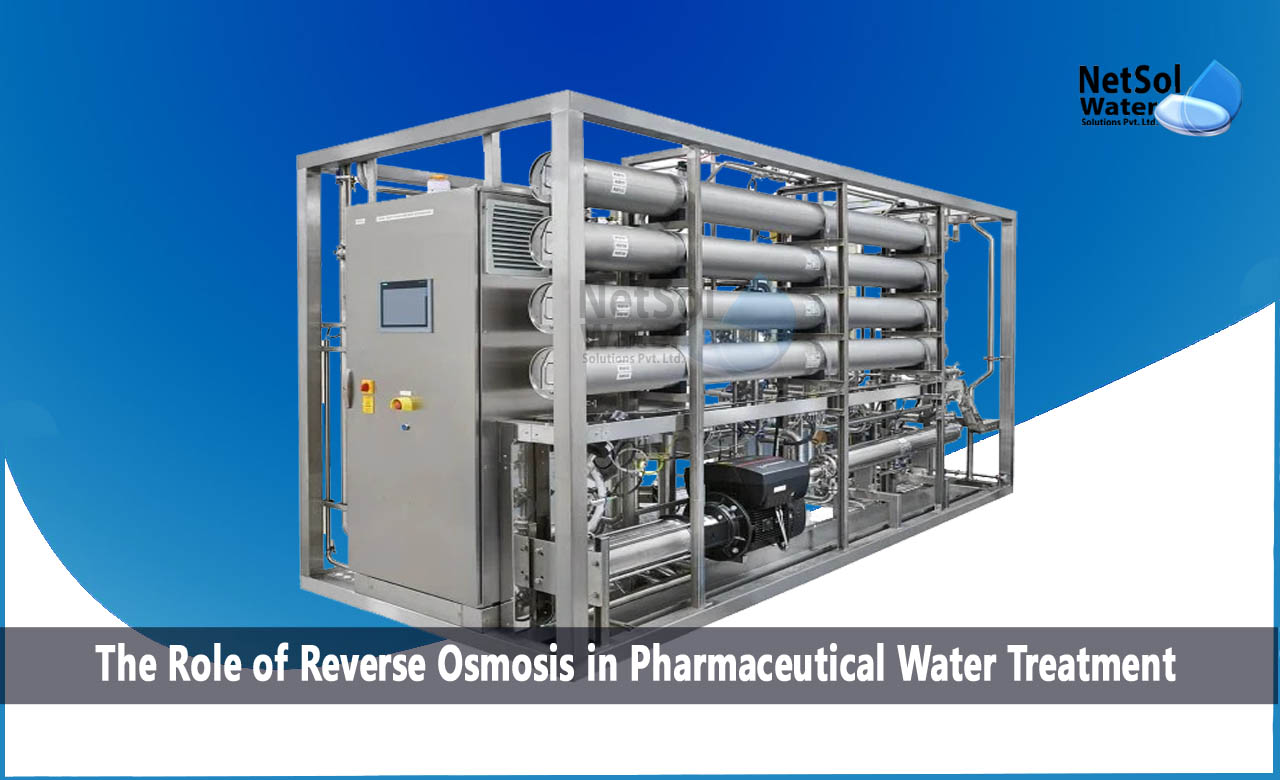What is the Role of Reverse Osmosis in Pharmaceutical Water Treatment?
Water is a crucial component in the production of pharmaceuticals, and it is used in the cleaning, quality assurance, and formulation of drugs, among other procedures. To guarantee product safety and regulatory compliance, however, the quality of water utilized in pharmaceutical applications must exceed strict standards. Because of its potent capacity to successfully remove pollutants, toxins, and microbes, reverse osmosis (RO) technology has become a crucial component of pharmaceutical water treatment. In this blog, we will explore the role of reverse osmosis in pharmaceutical water treatment, its benefits, and its applications in maintaining the highest water quality standards in the pharmaceutical industry.
1. Feed water purification:
Reverse osmosis is commonly employed as a primary step in purifying feed water for pharmaceutical applications. The feed water, usually sourced from municipal supplies or natural sources, undergoes treatment processes to remove particulates, chlorine, organic matter, and dissolved impurities. RO serves as a highly efficient purification method, removing up to 99% of contaminants, including bacteria, viruses, pharmaceutical residues, and endotoxins. By purifying the feed water, reverse osmosis ensures that the subsequent water treatment processes can focus on achieving the required quality standards without being burdened by high levels of impurities.
2. Water purification process production:
Purified Water (PW) is a crucial grade of water used in various pharmaceutical applications, such as drug formulation, cleaning, and equipment sterilization. Reverse osmosis plays a fundamental role in the production of purified water by further purifying the feed water to meet specific quality standards. The RO process removes remaining impurities, dissolved solids, ions, and organic compounds, ensuring that the water meets the required specifications for pharmaceutical use. Additionally, RO provides a consistent and reliable method for producing purified water, minimizing the risk of variations in water quality that could impact pharmaceutical processes and product quality.
3. Generation of Water for Injection (WFI):
Water for Injection (WFI) is the highest quality grade of water used in pharmaceutical manufacturing, particularly in parenteral drug formulations where water comes into direct contact with the product. Reverse osmosis is an essential step in the production of WFI, providing a reliable and effective method for removing impurities and achieving the required water quality standards. After the RO process, additional treatments such as distillation or ultrafiltration may be employed to further enhance the water quality, ensuring it meets the rigorous standards set by pharmacopoeias. The use of reverse osmosis in WFI production helps to ensure the safety and integrity of injectable pharmaceutical products.
4. Prevention of Contamination and Biofilm Formation:
Contamination control is of utmost importance in pharmaceutical water systems. Reverse osmosis aids in preventing contamination by effectively removing microorganisms, including bacteria, viruses, and fungi, from the water. By creating a barrier through its semipermeable membrane, RO inhibits the passage of these contaminants, safeguarding the water quality. Furthermore, RO plays a crucial role in inhibiting biofilm formation. Biofilms are complex microbial communities that can develop on surfaces, including pipes, tanks, and equipment. These biofilms pose a risk of contaminating the water supply. By removing bacteria and other microorganisms through the RO process, the formation of biofilms is significantly reduced, ensuring a clean and safe water system.
Conclusion:
Reverse osmosis technology plays a vital role in pharmaceutical water treatment, providing reliable and effective solutions for purifying feed water, producing purified water, and generating water for injection. It ensures the removal of impurities, contaminants, microorganisms, and dissolved solids, meeting the stringent water quality requirements of the pharmaceutical industry. Reverse osmosis contributes to the prevention of contamination, biofilm formation, and variability in water quality, safeguarding the integrity and safety of pharmaceutical products. With its proven track record in water treatment, reverse osmosis remains a critical component in the pharmaceutical manufacturing process, ensuring the consistent production of high-quality water that meets the regulatory standards and contributes to the overall quality of pharmaceutical products.
Netsol Water is Greater Noida-based leading water & wastewater treatment plant manufacturer. We are industry's most demanding company based on client review and work quality. We are known as best commercial RO plant manufacturers, industrial RO plant manufacturer, sewage treatment plant manufacturer, Water Softener Plant Manufacturers and effluent treatment plant manufacturers. Apart from this 24x7 customer support is our USP. Call on +91-9650608473, or write us at enquiry@netsolwater.com for any support, inquiry or product-purchase related query.



